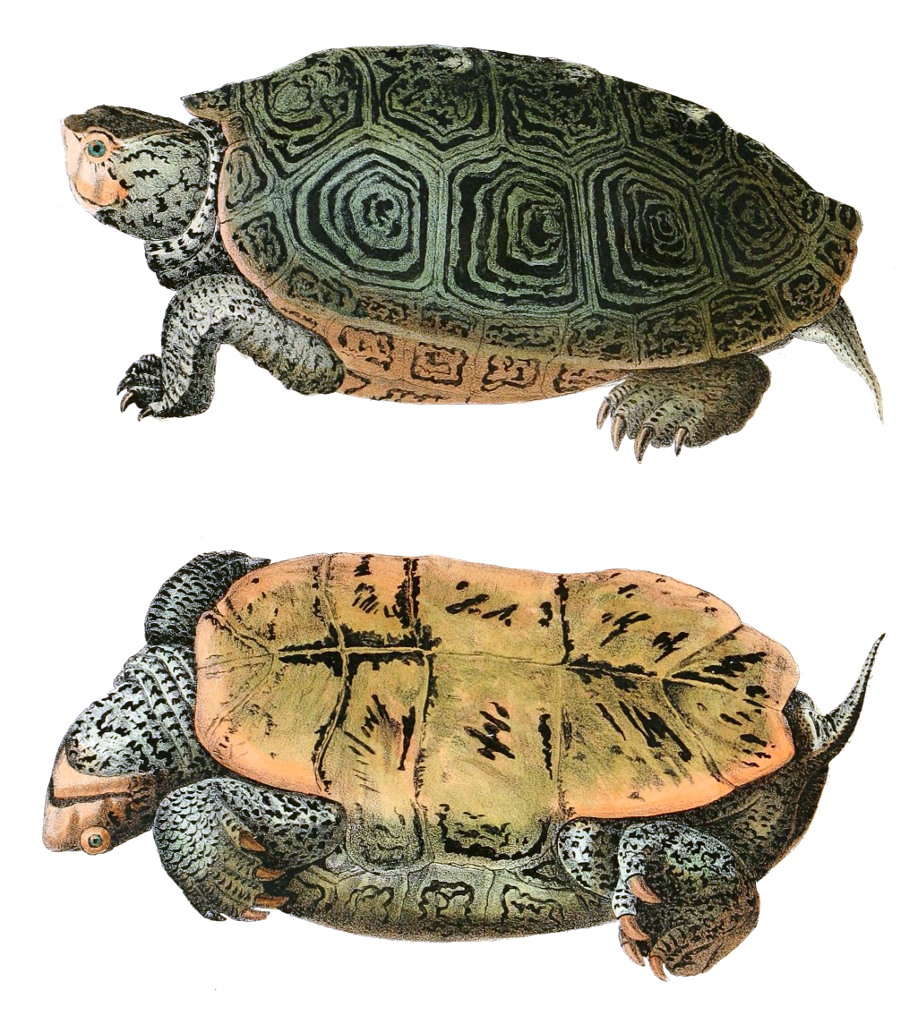A Pennsylvania man has pleaded guilty in federal court to smuggling protected turtles from the Jersey Shore. Prosecutors said that for more than three years he poached thousands of diamondback terrapins and their eggs from coastal marshes in New Jersey.
Why? Money. His profits over that three-year span were more than $530,000, according to court documents. The officials also seized over 3,400 diamondback terrapin hatchlings from his home in 2017. The hatchlings were returned to their New Jersey habitat.
New Jersey banned collecting, possessing and transporting diamondback terrapins in 2016. Selling the turtles is a violation of the Lacey Act which is the nation’s oldest wildlife trafficking statute and prohibits falsely labeling packages containing wildlife, fish, or plants.
The U.S. Fish and Wildlife Service conducted the investigation with assistance from the New Jersey Division of Fish and Wildlife.
 |
| The common Diamondback name refers to the diamond pattern on top of its shell (carapace) |
The poacher faces a maximum of five years’ imprisonment, three years of supervised release, a fine of up to $250,000 and restitution to New Jersey for the value of the turtles.
The diamondback terrapin is the only species of turtle that lives in the brackish waters of New Jersey’s coastal marshes and estuaries. They are protected under state law and by an international treaty, the Convention on International Trade in Endangered Species of Wild Fauna and Flora, recognizing the terrapin as threatened.
In the 1900s, the species was once considered a delicacy to eat and was hunted almost to extinction. The population also decreased due to the development of coastal areas and wounds from motorboat propellers. Accidental trapping of the turtles in recreational crab traps has also caused a threat to the turtles.
The diamondback terrapin is listed as an endangered species in Rhode Island, a threatened species in Massachusetts and is considered a "species of concern" in Georgia, Delaware, Alabama, Louisiana, North Carolina, and Virginia.
New Jersey banned collecting, possessing and transporting diamondback terrapins in 2016.
Earthwatch Institute, a global non-profit that teams volunteers with scientists to conduct important environmental research, supports a research program called "Tagging the Terrapins of the Jersey Shore." This program allows volunteers to explore the coastal sprawl of New Jersey’s Ocean County on Barnegat Bay, one of the most extensive salt marsh ecosystems on the East Coast, in search of this ornate turtle.
Sources:
wikipedia.org/wiki/Diamondback_terrapin
philly.com/science/
nj1015.com




